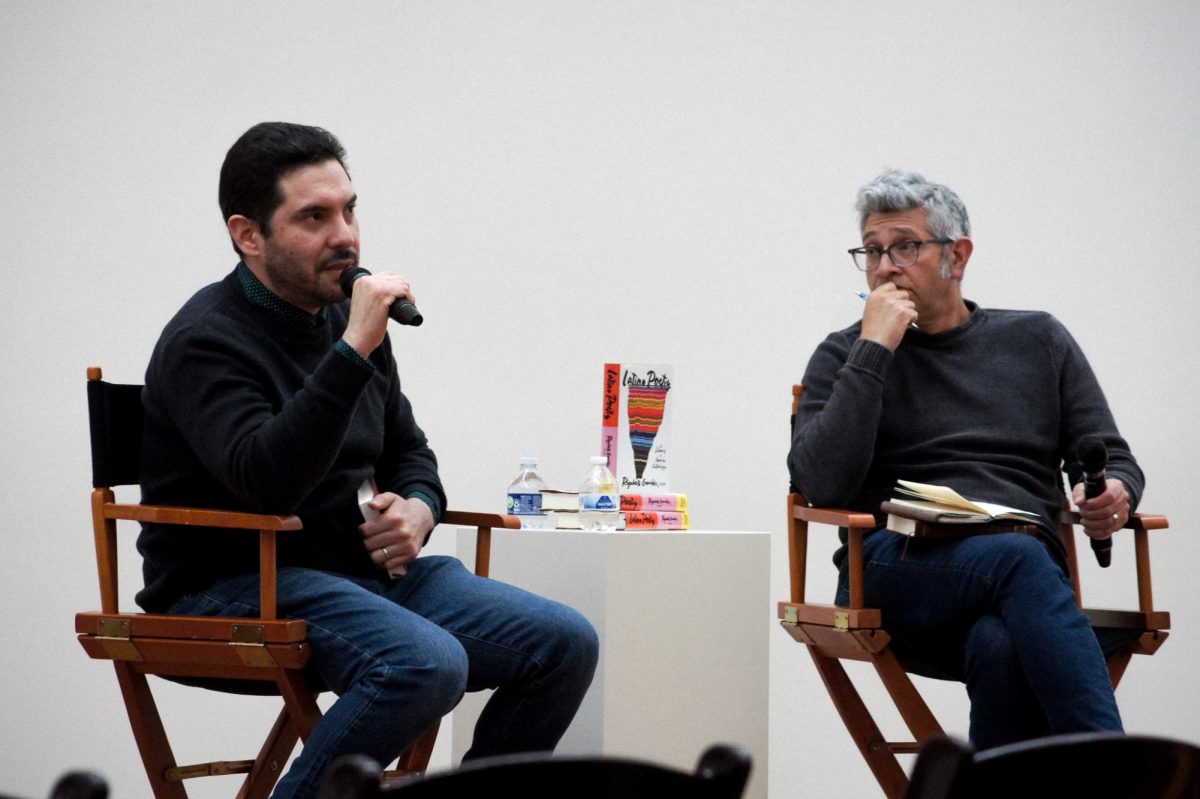Artist of the Week: Lee Isaac Chung
March 17, 2020
When I first saw “Minari” at the 2020 Sundance Film Festival, I knew I had witnessed a deeply powerful and lovingly poetic film — one that has changed my worldview completely. At a sold-out showing in the Rose Wagner Performing Arts Center, I watched as those around me laughed, clapped and wiped their eyes throughout this Korean family drama, each connecting with the film’s gentle and warm story of assimilation. The film touched audiences and juries around the festival, winning the U.S. Grand Jury Prize: Dramatic and the Audience Award for dramatic film entries. “Minari” was written and directed by Lee Isaac Chung, a filmmaker from Denver, Colorado — who is also a University of Utah graduate.
Background
The son of Korean immigrants, Chung was raised in the Ozark mountains of Arkansas on a small farm. He attended Yale University, majoring in ecology as an undergraduate and planning for a career in medicine. But during his senior year, he felt that his calling lay elsewhere. “I had to take an arts requirement course, and I took video arts from professor and filmmaker Michael Roemer,” Chung said. “This class inspired me, and I poured every minute I had into it.” He found his passion in filmmaking and decided to pursue it as a career instead. “I realized that I wanted to spend the rest of my life doing something that I can work at in a way that makes me forget the time.”
After graduating from Yale, he sent out applications to various film schools for his master’s, staying mindful of student debt. His decision to attend the U came from inexpensive tuition and a phone call he received. “The call came from Professor Kevin Hanson, and I felt an instant kinship with him,” Chung said. The U was the only school that personally reached out to him. Chung graduated with a Master of Fine Arts in 2004 and began his successful filmmaking career.
Early Films
For many, if not most, filmmakers, having a film premiere at the prestigious Cannes Film Festival is the actualization of their hopes and dreams. It’s an opportunity to showcase your film internationally among the most critically acclaimed people in the industry. Getting into the Cannes’ Official Selection isn’t easy. Each year there are thousands of entries from around the world. Many U.S.-born directors selected are already established, household names — directors like Quentin Tarantino, Spike Lee and Gus Van Sant. In 2007, Chung was the only director from the United States to receive an official selection for his first feature film, “Munyurangabo.”
“Munyurangabo” centers on two boys who forge a relationship in the aftermath of the 1994 Rwandan genocide. It was the first narrative feature made in Rwanda’s native language of Kinyarwanda, which Chung doesn’t speak. He was inspired to make this film after a visit to Rwanda in the summer of 2006 with his wife, who had previously gone to do volunteer work. “I needed to find something to do,” Chung said. “I taught a film production course, and we set out to make a film together.” Chung shot the film in 11 days, and voiced that the language barrier was not so difficult. “Everyone was very focused on collaborating to make a good film, since none of us had really been given the chance to make a feature film,” Chung said.
In addition to “Munyurangabo,” Chung has directed four other films — “Lucky Life” (2010), “Abigail Harm” (2012), “I Have Seen My Last Born” (2015) and “Minari” (2020).
Crafting “Minari”
“Minari” was a film on Chung’s mind that he always knew he wanted to make. “In January of 2018, I thought I might not have many chances to make films, because the industry is really difficult,” he said. “I decided I should try to make the film I’ve always wanted to make, so I started writing in February of that year.”
Aptly named for a resilient Korean herb that grows wherever its planted, “Minari” is Chung’s semi-autobiographical immigrant drama that interrogates the American Dream. “I grew up in a similar way that the little boy does in the film, but the father’s story is also very much my own, since he and I are the same age,” Chung said. “It was a way for me to think about my own father’s life during that time, to see how I can understand and identify with him in a more loving way.”
Chung delicately crafted the narrative of family in the film, looking at it as a couple of love stories — one between the husband and wife, and the other between the grandchildren and grandmother. “I wanted to make the family itself to be the protagonist of the film,” he said. “Many Western films place a single person as the ‘hero’ of a film, but I tried to allow the family and family bond to be the hero.”
While Chung hasn’t decided on what he’ll do just yet, he’s starting a new company to develop a few different projects. He hopes to develop a future project that is set in Utah. In the meantime, Chung’s “Minari” is being distributed by indie production company A24 in association with Plan B productions. It will have a theatrical release later this year.












